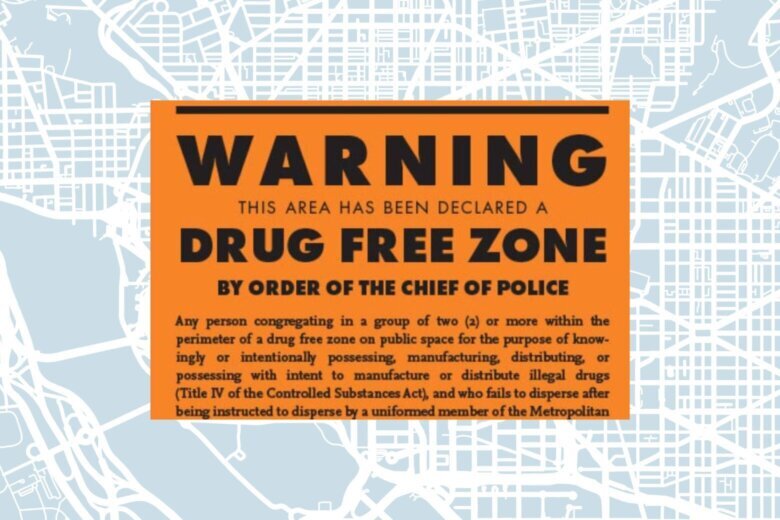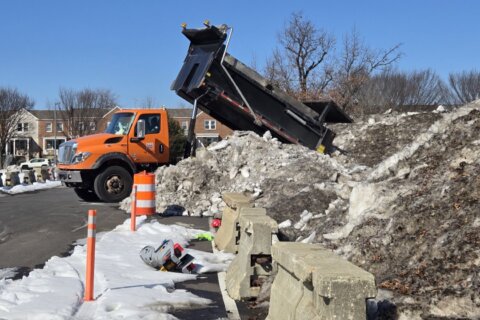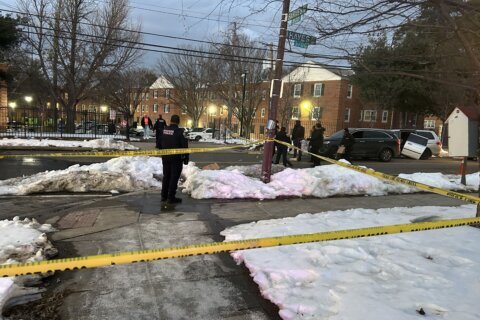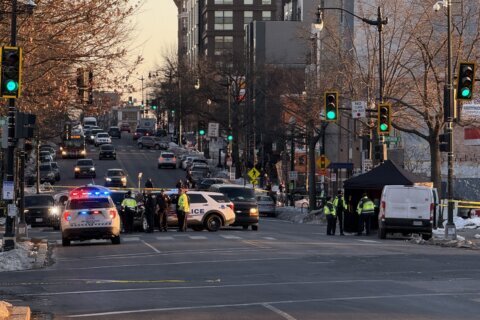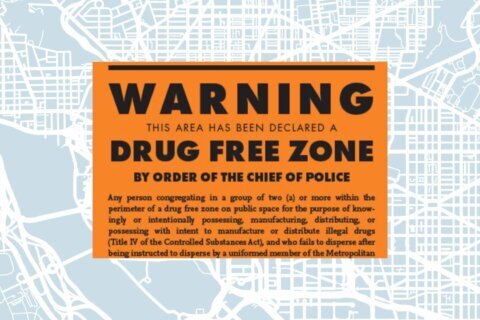
After the expiration of round two of D.C.’s new drug-free zones on Monday, police in the District have now announced a list of new zones — one in each of the city’s seven police districts — to go into effect Wednesday morning.
Bright orange signs indicating these drug-free zones were posted early Tuesday morning, 24 hours ahead of enforcement beginning, D.C. police officials said.
Limited to five days in duration and 1,000 square feet in size, the new round of drug-free zones are set to expire at 7:59 a.m. on Monday, April 1.
The boundaries of each drug-free zone have been established by D.C. police as the following:
- First District: 700-800 block of I Street NE; 800 block of 9th Street NE; 800 block of H Street NE; 700 block of 8th Street NE; 700 block of G Street NE; 700-800 block of 7th Street NE.
- Second District: 600-700 blocks of 11th Street NW; 600-700 blocks of 13th Street NW; 1100-1200 F Street NW; 1100-1200 H Street NW.
- Third District: 2000 block of 13th Street NW; 2000 block of 14th Street NW; 1300 block of V Street NW; 1300 block of U Street NW.
- Fourth District: 700 block of Kenyon Street NW; 3000-3100 blocks of Georgia Avenue NW; 700 block of Columbia Road NW; 3000-3100 blocks of Sherman Avenue NW.
- Fifth District: 1500-1600 blocks of Neal Street NE; 1500 block of Maryland Avenue NE; 1200 Holbrook Street NE; 1400 block of Morse Street NE.
- Sixth District: 4500 block of Benning Road SE; 4500 block of B Street SE; Unit block of 46th Street SE; 4500 block of East Capitol Street SE.
- Seventh District: 3900 Block of South Capitol Street SW; 3900 Block of Martin Luther King Jr. Avenue SW; Unit Block Atlantic Street SW.
The drug-free zones were authorized by sweeping anti-crime legislation approved by the D.C. Council and signed into law earlier this month. Police called the measure a tool “to help communities reclaim their public spaces.”
In designated drug-free zones, police can require people gathering in groups of two or more to leave the area, if they are believed to be involved in illegal drug activity. Anyone who refuses to leave after the first warning is subject to arrest — a change from previous protocol.
Three arrests have been made since the designation of these zones.
The drug-free zones are declared by the police chief and will be chosen based on the number of drug arrests, the number of calls for service, and the violent crime rate in that particular area.
WTOP’s Jack Moore and Luke Lukert contributed to this report.
Get breaking news and daily headlines delivered to your email inbox by signing up here.
© 2024 WTOP. All Rights Reserved. This website is not intended for users located within the European Economic Area.

